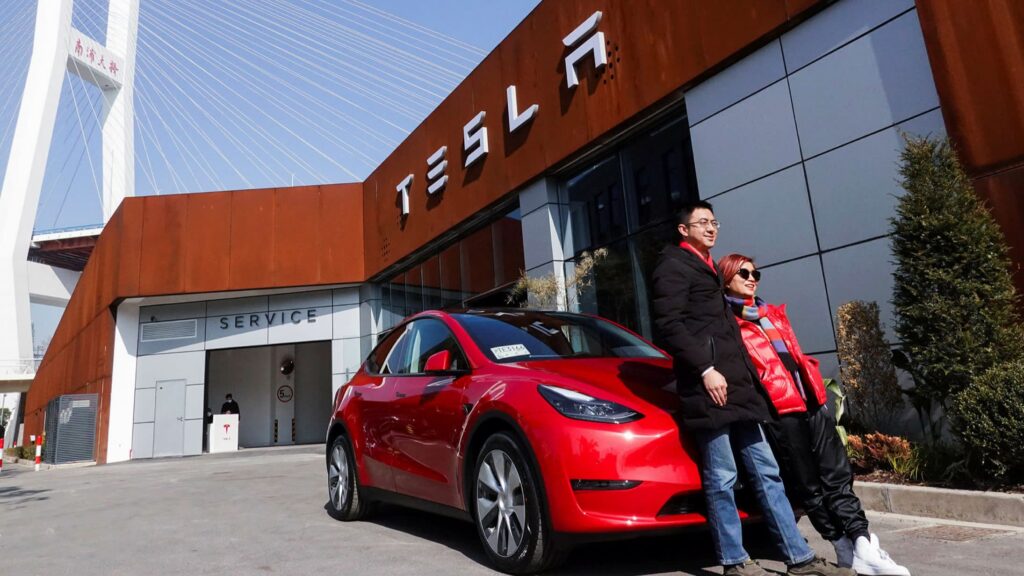Tesla to lose hundreds of millions of dollars in emission credit sales

Tesla is set to lose hundreds of millions of dollars this year in payments after carmaker Stellantis ditched plans to buy emission credits from the US group.
In 2019 Fiat Chrysler (FCA) entered a deal to pool with Tesla to pass tough European carbon dioixide rules, agreeing to pay to offset the emissions from its own line-up.
But Stellantis, formed earlier this year by the merger of Fiat Chrysler and PSA, has abandoned the deal as the combination of the two carmakers means they will now comply with the rules, chief executive Carlos Tavares told French magazine Le Point this week.
Richard Palmer, chief financial officer of Stellantis, said on Wednesday that about two-thirds of the €300m allocated by FCA for credit payments went to Tesla in Europe.
That sum “is the type of benefit we will probably get by no longer participating in the pooling agreement with Tesla in Europe”, he told analysts and investors.
“Clearly, one of the key benefits of the merger for the business is that we are compliant in the extended EU without any need to resort to the use of credits or of pooling arrangements,” he added.
Several regions including China, the US and Europe allow carmakers to meet emissions rules by purchasing “credits” from groups that sell cleaner vehicles.
Selling credits to rivals has been a financial lifeline for Tesla, often accounting for much or all of the group’s profitability, while its core business of selling electric cars struggles to break even.
Tesla made $518m selling credits in the last quarter, while reporting a net profit of $438m. The company made close to $1.6bn selling credits across the world during 2020 alone.
Under European emissions rules, carmakers had to lower the average CO2 output of their fleet to 95 grammes per km by last year, or face heavy fines.
One concession allowed to carmakers is the ability to “pool” with cleaner rivals, allowing laggards to meet the rules by paying more environmentally friendly groups to team up.
Ford last year pooled with Volvo Cars, whose hybrids allowed the group to pass its goals, while Volkswagen pooled with the electric brand MG.
PSA passed its CO2 rules last year due to a higher mix of electric and plug-in hybrid models.
While FCA was far behind PSA in electric models, its European sales were modest compared with its larger North American operations.
Palmer was speaking after Stellantis reported its first quarterly results as a merged group, with revenues up 14 per cent to €37bn, due in part to higher overall volumes and despite a worsening impact from the global microchip shortage.
Follow @ftclimate on Instagram
Climate Capital

Where climate change meets business, markets and politics. Explore the FT’s coverage here